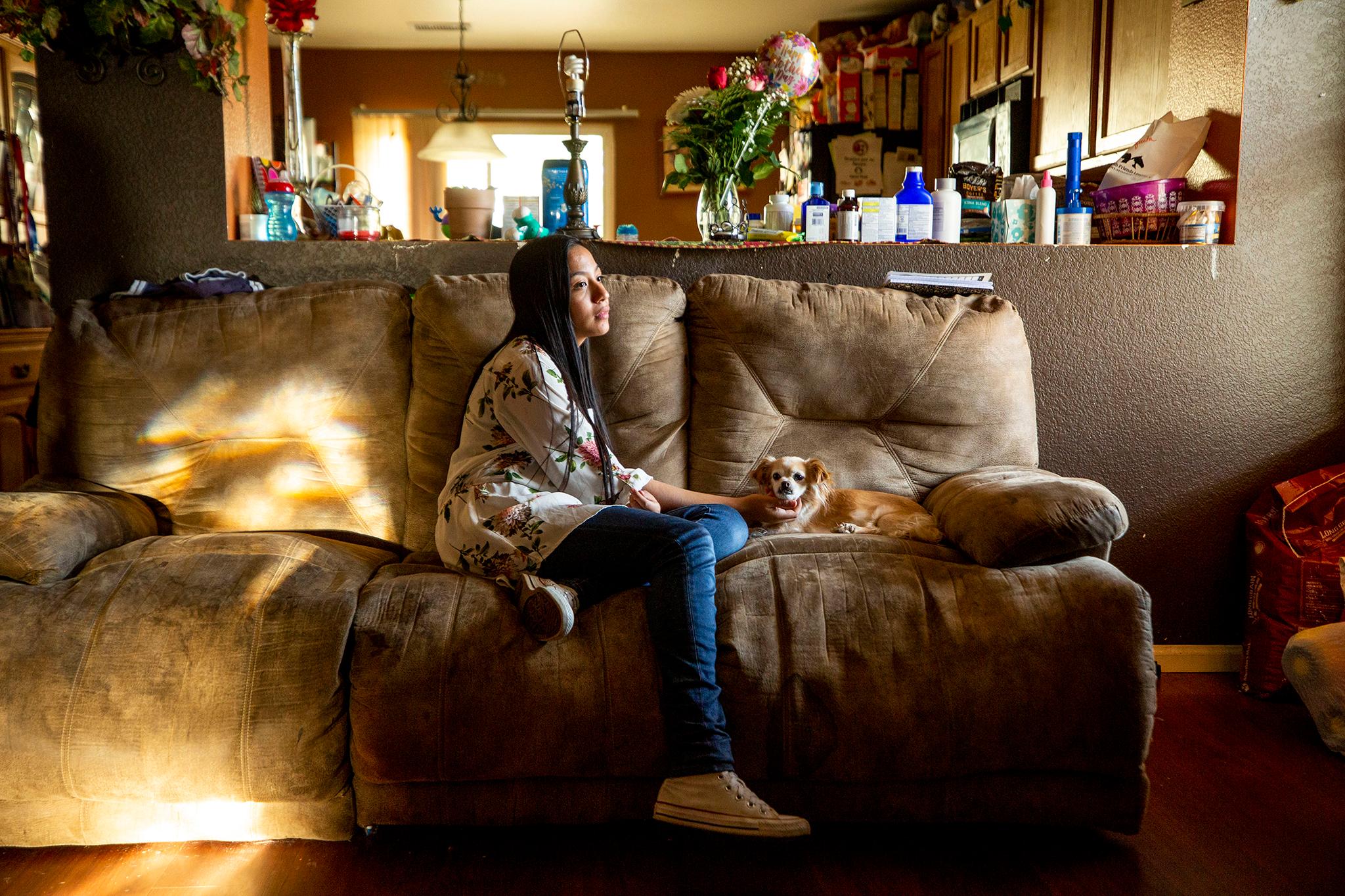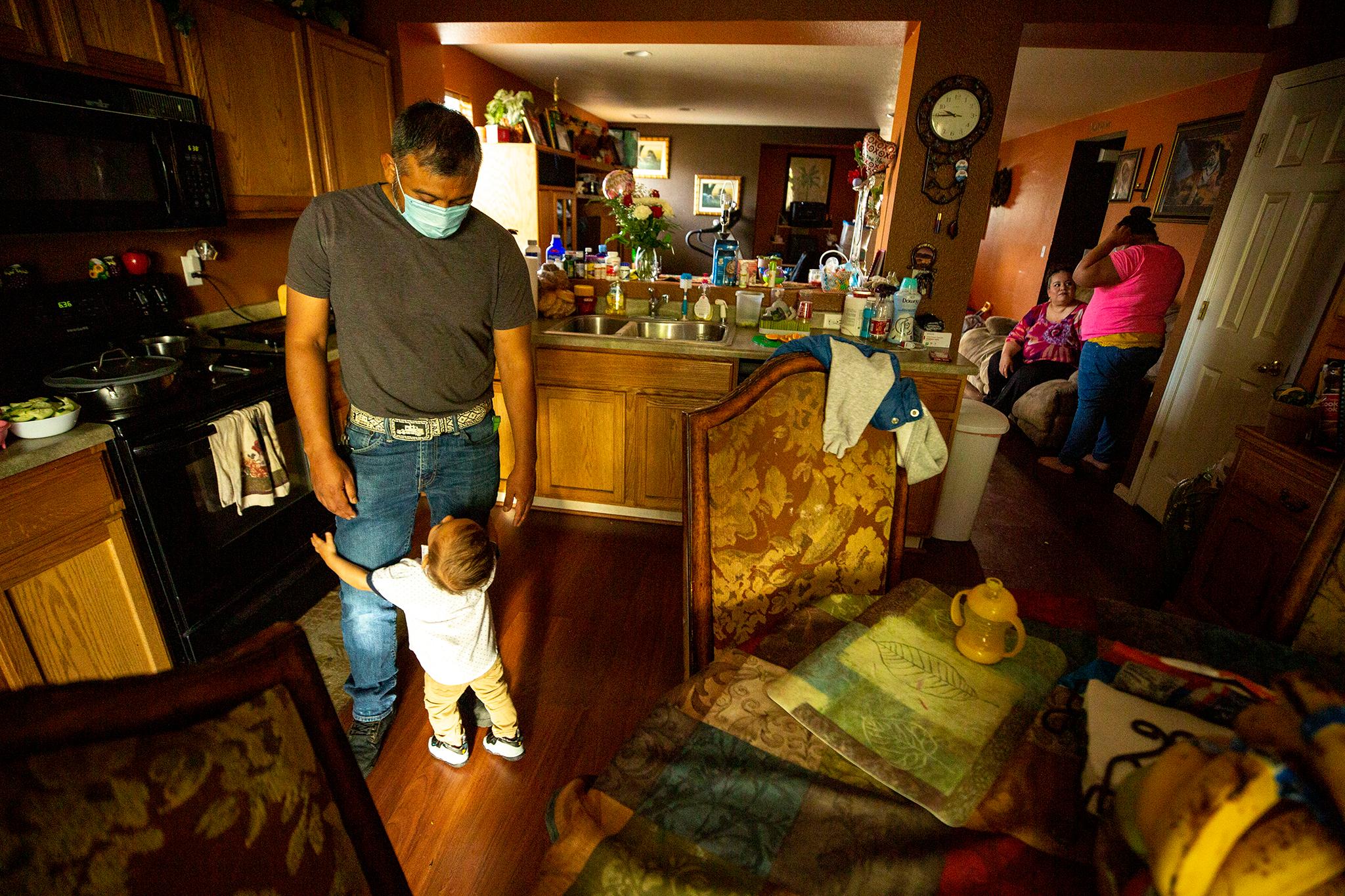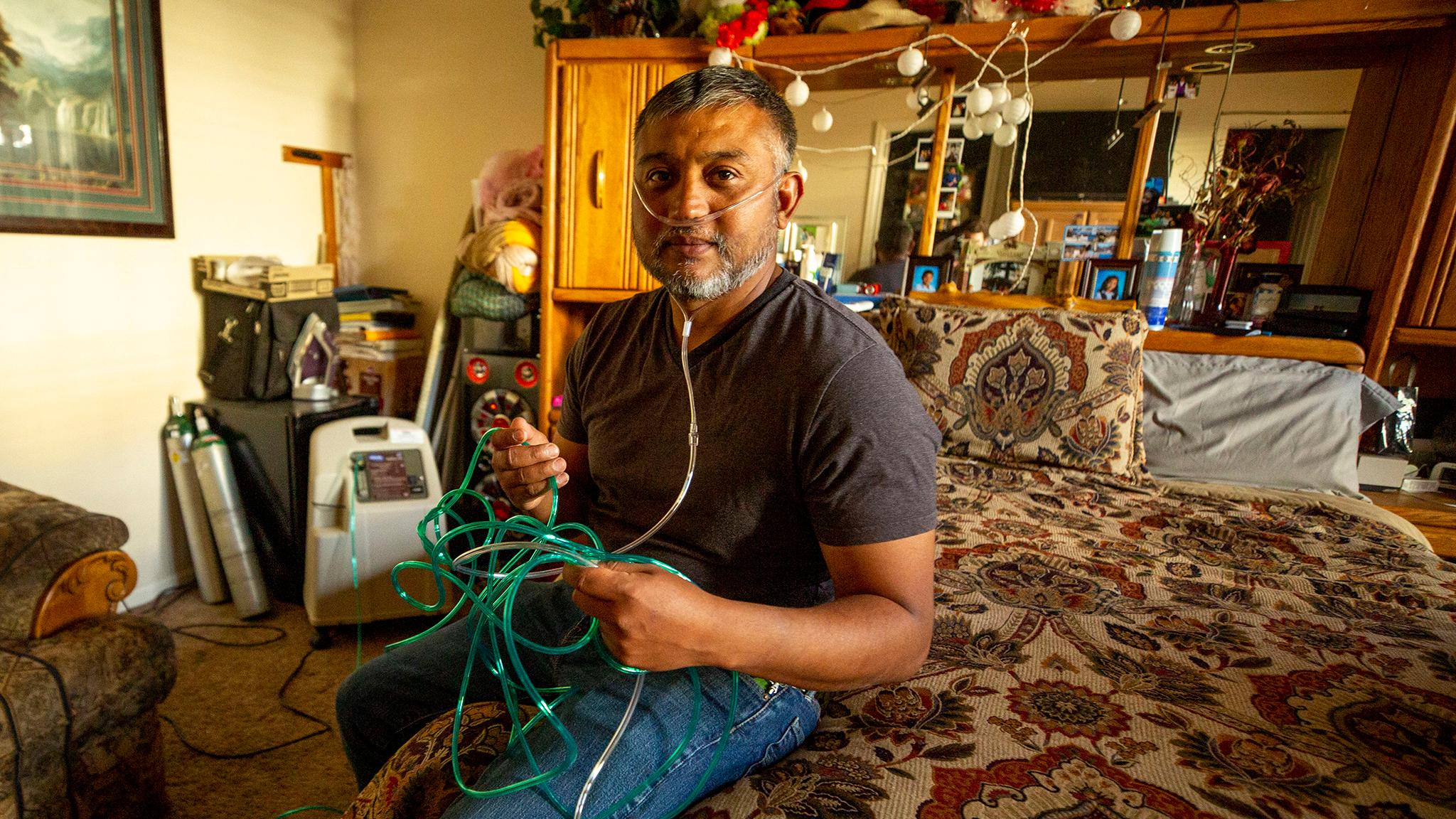"What if I die from this?"
Dina Puente recalls her husband, David, asking that question as he struggled to breathe and speak, symptoms he started showing on March 27. Dina said she tried taking her husband to a hospital, including one that she said wouldn't accept him because his fever was not high enough.
He would end up hospitalized at the Medical Center of Aurora from April 7 to April 10. The family got confirmation David had COVID-19 two days after he was admitted. When he was released, he got to take home some extra oxygen.
David speaks English, but Dina said Spanish is his first language, so he struggled to express his symptoms to doctors. The coughing and shortness of breath didn't help.
"The treatment, all and all, was unfair because when he was in the hospital, he said there were other people there on the floor who had coronavirus. He said that he was left alone, nobody really treated him the way he should have been treated," she said.
Dina suspects that David's undocumented status and lack of health insurance played a role in staffers not treating him the same as other patients. Dina said nurses wouldn't help her husband with things like ordering food.
She said she's heard about similar experiences from other people with undocumented family members or those who only speak Spanish, including an elderly woman who told Dina she felt her husband was basically told to fend for himself.
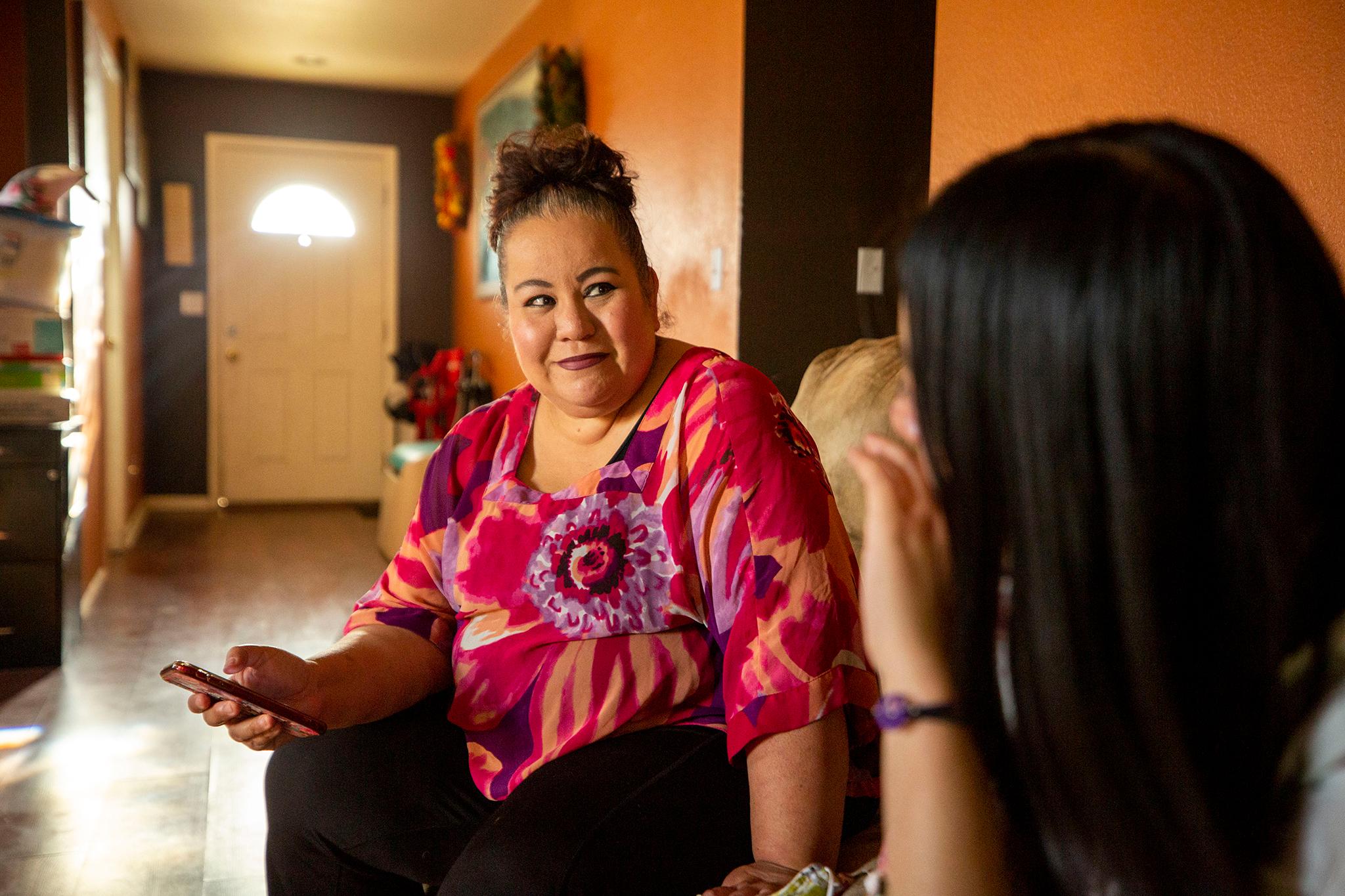
Medical Center of Aurora marketing and public relations director Rachel Robinson said in an email to Denverite that the hospital has the "privilege of serving a vast, multicultural community and our colleagues have been trained in cultural awareness and competence to better understand individual perspectives when facing their healthcare needs." Robinson said their teams try to provide culturally competent care to every patient and services and access for more than 160 languages and dialects through a video remote interpreting device and in-person interpreters.
"These services provide language translation for clinical and nutrition services teams," Robinson said in the email. "We always encourage patients to contact our patient advocates directly to work through any concerns, problems, or questions."
The Puentes live in Montbelllo, a neighborhood with some of the highest rates of positive COVID-19 cases in the city.
Latinos make up about 30 percent of Denver's population but represent just over half of all COVID-19 cases in the city, according to the latest figures from Denver Public Health. There are 4,118 cases in Denver, with 207 fatal cases.
David works in construction and is the family's breadwinner. Their home consists of seven people, including three daughters, one of whom lives there with her partner and their infant child. While experts have said they don't know why Latinos have faced much higher COVID-19 infection rates in Denver than other ethnic groups, some have mentioned large households and that many essential businesses count Latinos as staffers as potential factors.
Dina said David is worried about getting the disease again. Her husband doesn't have any pre-existing conditions and watches what he eats, she said.
"When he caught this, it was a big surprise," Dina said. "He never gets sick. Never."
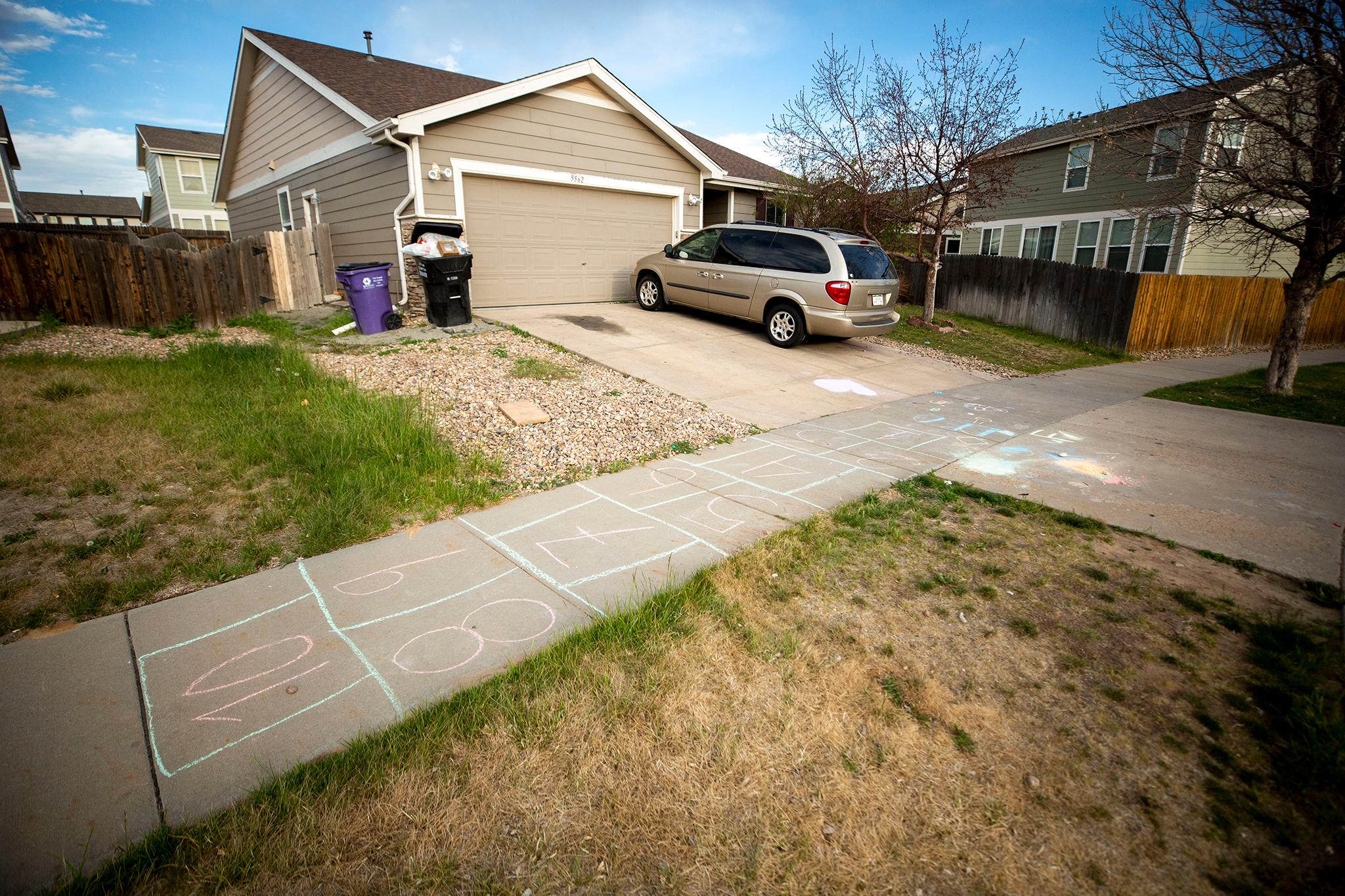
Dina said everyone else in the household had similar symptoms in early March. Her youngest daughters missed a week of school after they were diagnosed with flu-like symptoms. One of her daughters has preexisting health conditions, including respiratory issues, but Dina said she didn't require hospitalization.
Her eldest daughter and her partner, who work in medical care, both tested positive for the COVID-19 antibody.
Servicios de la Raza Executive Director Rudy Gonzales said there can sometimes be language barriers in hospitals. He said hospitals should train their staff on cultural sensitivity and represent the community they serve.
"It's around also educating our community and helping them acquire a health literacy and education," Gonzales said.
Gonzales, whose nonprofit provides services primarily to low-income Latinos, serves on the state COVID-19 Health Equity Response Team. The committee's goals include developing policies for communities of color amid the ongoing pandemic that he said will help decrease the inequities and address how they have been disproportionately affected by the pandemic.
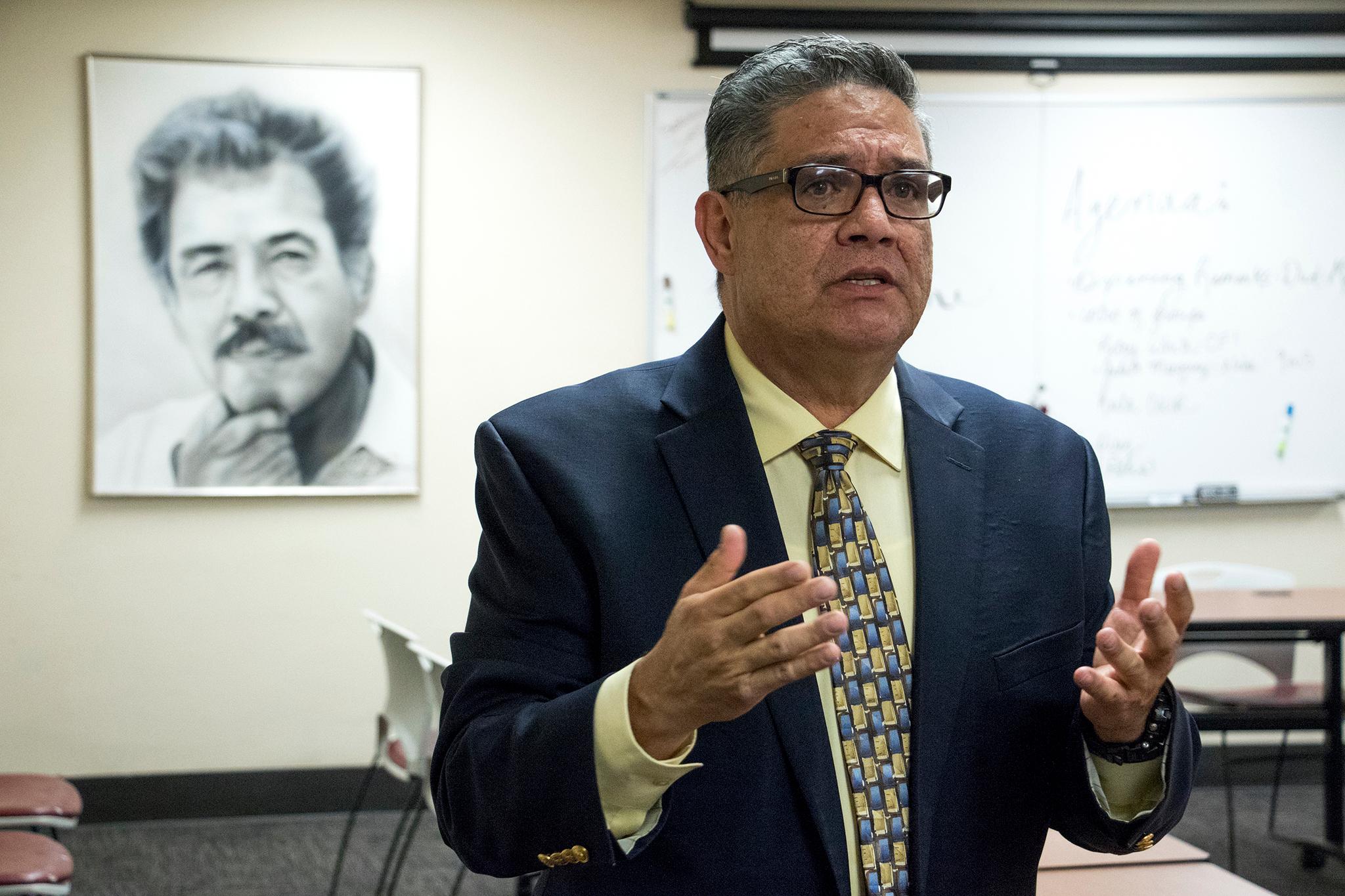
Dina said she spoke to staff at the Medical Center of Aurora about her husband's treatment but didn't file a formal complaint.
On Wednesday, the hospital contacted David after Denverite had reached out to it for comment for this story. Dina said she plans on calling back and discussing their concerns.
The Puentes are two months behind on their mortgage after David missed months of work. She won't be getting a stimulus check because David is undocumented. She's planning on filing their taxes jointly soon.
"There's a lot of us suffering from this," Dina said.
